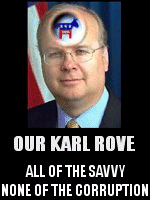Democrats,
I hold The Economist in high regard as a global news publication. Though, while reading it, it is important to recognize and acknowledge that it advocates a fierce ideology that maintaining free markets is by far the most advantageous strategy for improving the state of the human condition. Thus, when analyzing American politics, they are not going to be too inclined to endorse a Democrat for President. In fact, in articles throughout this year, I sensed The Economist strongly leaning toward McCain in their election coverage.
So it was to my great surprise that they have announced their endorsement of Barack Obama for President. Unlike its only two prior endorsements of Democrats (Kerry as "incoherent [and] far from an easy call," and Clinton as representing a party that "deserves a chance to try"), this endorsement is full-throated:
"The Economist does not have a vote, but if it did, it would cast it for Mr. Obama. We do so wholeheartedly: the Democratic candidate has clearly shown that he offers the better chance of restoring America's self-confidence."Note: There is, of course, an argument made by Republicans that all the Economist does is endorse the "non incumbent party" nominee. This frame is clearly being advanced as a way to discount this powerful endorsement. However, it's simply not true: In 1984 and in 1988, The Economist chose to endorse no one.
This endorsement is powerful on two fronts:
1. The President of the United States is not a single-issue position. This is a free-market (i.e., anti-socialist) magazine weighing all the factors involved in what a President is and needs to be for America. Being a British enterprise, The Economist has traditionally seen America as a crucial gravitational force for the world's stability, safety and morality. From their perspective, America is much more than a nation -- it is a (now withering) symbol of what people and nations can do at their best: fearlessly innovate, explore, give, work and grow.
From this vantage point, even the virulent free-market editors see the balanced scorecard: international relations, terrorism, the economy, race relations... all of these factors go into picking a modern-day President. The Economist reminds us that picking a President is so much more than a tax plan.
2. Obama is more like Ronald Reagan than most on either side of the aisle party want to admit. This is prescient OKR speaking; meaning, this is not a tactic that is necessarily going to win Obama any votes, hearts or minds in the next few days. But I'm going to advocate this frame nevertheless because I want to be out in front of it.
Actually, I'm not the one who is out in front of it first -- Obama was when he said that Reagan "changed the trajectory of America... He put us on a fundamentally different path because the country was ready for it." And he meant what he said -- it's just that he quickly learned that he couldn't say such things in Democratic primaries without being bludgeoned by a nearby Clinton.
Nevertheless, it's an important parallel. In 1980, Reagan was seen by many (right up to the end) as a vapid two-bit actor who did not have the experience or foreign policy chops to navigate America through the Cold War. Yet, no matter what your opinion on his philosophies and actions, he was a transformational President. He fundamentally shifted the domestic political landscape for decades, and dramatically changed the status quo of world events.
But how did this "unknown" and "inexperienced" candidate do it? Reagan transformed the nation -- and the world -- by restoring America's self-confidence.
Think about this while reading the Economist's endorsement again.
It's true that Obama's political philosophy is quite different from that of Reagan's. But his leadership philosophy is quite reminiscent.
During the primaries, there was a darn good reason why Republicans were so distressed about a potential Obama candidacy (distressed to the point of outright shilling for Hillary Clinton) -- they saw the Democrats' Ronald Reagan rising.

No comments:
Post a Comment